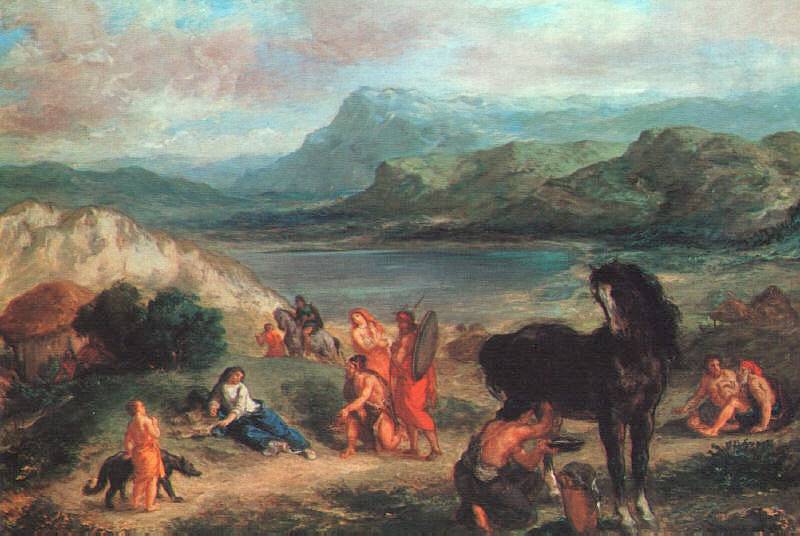The First Metamorphosis

The first transformation described in Ovid's Metamorphoses is not the creation of the world, it's the creation of the poem, and the poem won't settle. Ovid's Mercury-heeled hexameters set us running:
In nova fert animus mutatas dicere formasThe first line tells us the subject, bodies transformed, but what kind of poem will treat of this subject? It will sing its way from the origin of the world "brought down" to present times, yes, but the way in which time is treated is the form of the Classical poem: it will be epic - perpetuum connotes this - but again it will also be light and artless, that is deductum carmen, a playful anti-epic in the Callimachean way. This will turn out to be Ovid's Latin style throughout to write two poems at once, while also hinting at possibilities and details in other unchosen versions of each story, yet chosen still, often by synecdoche (one incongruous detail which is an aspect from an alternative telling, or even more than one beginning or end like a setting of short runs of splayed thread), set running beside and through, a movable delta.
corpora; di, coeptis (nam vos mutastis et illas)
adspirate meis primaque ab origine mundi
ad mea perpetuum deducite tempora carmen!
In translation such a delta is immediately a problem. Arthur Golding's revered fourteen-liners begin
Of shapes transformde to bodies straunge, I purpose to entreate,whereas Dryden began
Ye gods vouchsafe (for you are they ywrought this wondrous feate)
To further this mine enterprise. And from the world begunne,
Graunt that my verse may to my time, his course directly runne
Of bodies chang'd to various forms, I sing:and between the two, Sandys:
Ye Gods, from whom these miracles did spring,
Inspire my numbers with coelestial heat;
'Till I my long laborious work compleat:
And add perpetual tenour to my rhimes,
Deduc'd from Nature's birth, to Caesar's times.
Of bodies chang'd to other shapes I sing.The only one of these to get at the ambiguity of form is Dryden's "perpetual tenour to my rhimes" where perpetual tenour" feels solemn and epic, and "rhimes" is immediately more playful, with the idea of one added to the other to produce a mixture. The add goes back to "my numbers" and the choice of "Deduc'd" is a brilliant Drydenesque piece of material rhetoric, picked up from Sandys and then morphed; Dryden can make thought transform to poetry where a physical sense of thought's movement is enacted, without recourse to the sensual, a more usual location for physicality to be looked for in a poem. Deduc'd adds to this mathematical building up, of time and the poem, a system or extrapolation from the start, but the start is the changing of forms, so it's both a sequence and a constant elicit looping.
Assist, you Gods (from you these changes spring)
And, from the Worlds first fabrick to these times,
Deduce my neuer-discontinued Rymes.
*
Ovidian changes keep happening to the text in translation, and often Ovid's wit - calling the heavenly palace of Jove, "the Palatine district" (the hill where Imperial residencies were, the Capitol Hill) - lever off further quips in English versions - Sandys takes this and says:
This glorious Roofe I would not doubt to call,Addison makes Apollo into the "Sun King" while Swift sets 'Baucis and Philemon' in a "small village down in Kent". As Kenneth Koch notes,
Had I but boldness lent me, heaven's White-Hall
Byron is great, Williams of late, and Shakespeare for the ages;
But what is life, and what is fate, without Ovidian changes?
-----------------------------
Edmund Hardy